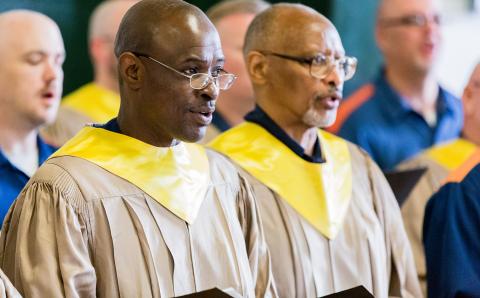I am a bivocational minister. Recently I started a contracting company with two friends. We fixed the roof of a church and the exterior wall of a house. The church paid promptly. But an elder from the church who owns the house refused to pay the agreed amount. He said he would only pay $3,500—$3,000 less than the agreed amount.
This kind of story is common. It’s hardly worth mentioning apart from theological reflection. But what should Christians do in these situations?
First, we should assess the severity of the sin. Not all sins are equally severe in terms of their harm to others. Jesus makes this point when he says the judgment of Chorazin, Bethsaida, and Capernaum will be greater than that of Sodom and Gomorrah (Matt. 11:20-24). The logic is inescapable: the more harmful the sin, the greater the judgment. Jesus’ earlier words that lust is like adultery and hate like murder cannot be used to eradicate the idea of the degrees of sin. In our case, the sin is not big. A man cheated, and a company lost $3,000.
Second, we should begin by following the steps Jesus gives in Matt. 18:15-20: point out the fault, bring others along if repentance is not achieved, and let the church know if stubbornness persists. We followed step one and got nothing. But we decided not to escalate. We agreed to let the elder pay whatever he saw fit.
When we walked away, though, we followed a different principle. The apostle Paul says something remarkable to the Corinthians: “Why not … be cheated?” (1 Cor. 6:7). He argues that we have the prerogative to walk away. But some parsing is necessary: In this context, Paul is addressing wealthier members of society who are taking poorer members to court. In this case, he says that justice does not always need to be exacted. Christ followed the same principle. He, who was sinless, paid the cost on the cross for the sins of others. To follow Christ, we have the privilege of doing the same. We can be wronged and still forgive because we follow a God who has forgiven us.
But because sin can compound, we need to be on guard. It is not just about being sinned against anymore. The Greek word apostereō used in 1 Cor. 6:7 puts us on alert. It means “to defraud,” and in three of the five times it’s used in the New Testament it connotes financial fraud (Mark 10:19; 1 Cor. 6:7-8; James 5:4). The sequence of sin works like this: If we don’t get paid, we might fail to pay our workers. We can pass along the fraud. This temptation is always there. Christians, however, have the ability to end this pattern. The person who takes the first hit should be the leader in God’s economy. Godly people have always blessed others at their own expense, whereas ungodly people seek to fatten themselves at the expense of others.
When reflecting on our particular case as a microcosm of a daily reality, a few points emerge. First, the church has been called to radical nonconformity. Second, God in his patience allows us to deal with our sins. If we have defrauded others and can make amends, we should. Third, walking away and leaving things to God is not a sign of weakness but of a vital relationship with God. The Holy Spirit will honor such acts and can use that grace to break down strongholds.
About the Author
John Lee is an administrator at an independent school and an interim pastor of Newtown Reformed Church in Elmhurst, N.Y. His Ph.D. is in ancient history. He is the author of the book On Generosity (stonetowerpress.com)







